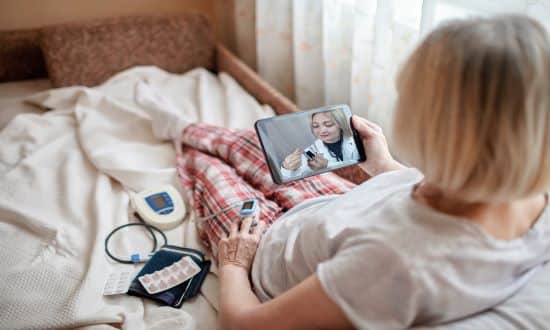BT ramps up digital health ambitions in the UK
- 18 May 2023

Telecommunications giant BT is betting on its incumbent status and connectivity expertise to help play a key role in powering the digital networks of the UK healthcare system, and it is expanding its healthcare offerings accordingly.
Over the past two years, the company has been developing its healthcare business, setting up a clinical advisory board in order to help it design products that are matched to the needs of the NHS. It also launched its Vanguard Programme, which is designed as a “collaborative space” to help frontline healthcare workers try out and evaluate technology to ensure it fits local requirements.
“Our purpose is to invest in adjacent opportunities to the core BT business of connectivity,” said Neal Herman, director of HealthTech at BT’s incubation hub, Etc., in an interview with Digital Health. “Our mission is about connecting people to the right care at the right time, and whatever activity we do ladders into that.”
A separate division of Etc. is piloting the use of drone technology to deliver medicines using BT networks, and Herman said drones could potentially be employed in other healthcare solutions in the future.
Three areas of focus
The company’s vision can be divided into three themes, Herman said: health navigation, which helps to define patient relationships with the healthcare system; patient flow, which allows hospitals and healthcare providers to move patients efficiently through the system; and remote care.
Herman envisions the first category as a world in which “the clinician calls you, rather than you calling the clinician.” Health navigation is essentially a signposting product that builds on digital platforms and interactive voice response (IVR) technology. Starting at general practice, the first point of patient access, the solutions can ensure that people get to the right clinician from the start, whether it is an immediate referral to a consultant or an appointment with a physiotherapist.
Patient flow, he explained, takes over once patients have presented at the hospital, and makes capacity more easily managed by nurses and side managers. “It’s about giving site managers visibility about which beds are available where, with real-time data flow,” Herman added. The solutions are currently in use in northeast Essex.
The remote element of the process involves products ranging from wearable technology to virtual ward monitoring platforms and is already being trialled in Warrington to monitor patients with chronic obstructive pulmonary disease (COPD) and hypertension.
Last month, BT announced the launch of a virtual ward program that will include smart monitoring devices and partnerships with other providers to help connect artificial intelligence (AI)-enabled virtual care platforms to capture health information in real time and assess patients’ conditions in care homes, community nursing and virtual wards.
“BT is very, very good at large-scale adoption, scale and landing of technology and we have significant right to play,” Professor Sultan Mahmud, director of healthcare, business at BT told Digital Health.
Mahmud, a former chief innovation, integration and research officer at Royal Wolverhampton Hospitals NHS Trust (RWT), who joined BT in 2021, added: “The translational gap is something BT is very good at filling. This is all about interoperability and interoperation on a technical level.” A major goal of interoperability is ensuring that procurement of technology has “no closed systems or vendor locking,” he added.
Helping the NHS address staff shortages and waiting lists is reflected in many aspects of the company’s strategy, Mahmud points out. Used well, he said, remote technology can act as a retention tool for staff, and help alleviate pressures on hospital beds.




